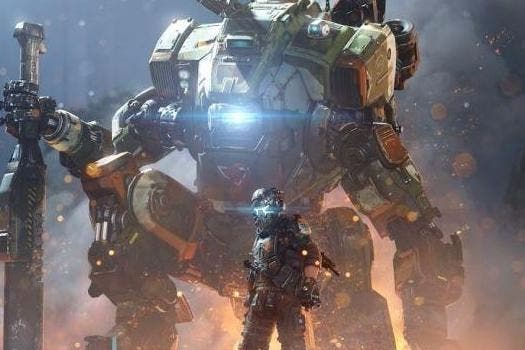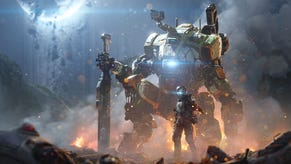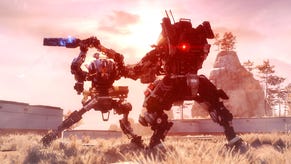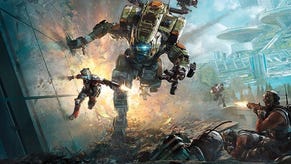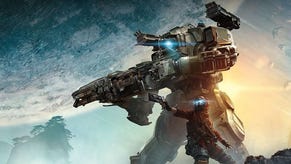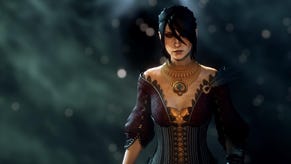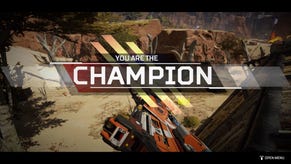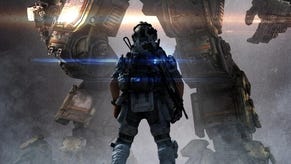Time to kill genre?
Because it might be killing games.
This piece contains spoilers for a mission in Titanfall 2 that you really don't want spoiled.
I wish I could have visited the old library in the Warburg Institute. The Warburg is an establishment in London committed to exploring iconography, or the study of meaning in art, and its library, as I discovered in Everything is Happening, a book by the late Michael Jacobs that I was reading on the bus in today, was arranged accordingly.
It sounds fairly disorientating:
"Embarrassed by my initial inability even to decipher the Greek letters above the main portal" --We've all been there, Michael!-- "''I was then cowed by [the] library, each of whose four floors was dedicated to a particular concept, beginning with 'The Image', proceeding to 'The Word' and 'History', and ending with 'Religion'. In the course of a preliminary erratic search from shelf to shelf, I soon grasped that the 'classical tradition' was a concept that had been interpreted to include almost everything, from old Baedekers to treatises on palmistry and highland dancing."
How difficult would it be to navigate a library like that? Baedekers one minute - my guess is that this is a reference to the old travel guides? - and lifelines and digit ratios the next. But also: what discoveries you might make! What a fresh sense of potential, of glimpsing, even fleetingly, the lurking interconnectedness of many things. Ultimately, the Warburg's reliance on a few monolithic concepts seems anything but monolithic. It suggests that the broader a concept is, the more subversive it might become. You make organising ideas sufficiently expansive and they sometimes begin to mock themselves in useful ways. I wonder what happens when you take them away entirely.
And on that note, the Warburg's library, which I did not know about before I got on the 27 this morning, seems strangely connected to something I was thinking about all yesterday: that Titanfall 2 has flopped, and that this is a tragedy, because the game is brilliant.
Of course, everybody's scrambling to come up with reasons why this might have happened. The somewhat unappealing art style of the original? ("Agricultural", was the word employed, with damning precision, by a colleague the other day.) The lack of humanity and obvious human appeal in a game about guns and robots? The sheer density of Christmas Shooters? Or the fact, and I think this is where Warburg comes in and ties many of these ideas together, that Titanfall 2 isn't really a pure shooter at all so nobody knew quite what they were missing out on?
Clever people who ran the Warburg, I reckon, who knew that the way information is organised can sometimes have as much impact as the information itself. Titanfall 2 is a case in point, I think. I played the first one, and I loved it, particularly the Smart Pistol, which connects the weaker player, through arcs of scarlet thread, to the rarified world of headshot mastery. But I didn't initially want to play the sequel, because I knew it had a single-player campaign, and with shooters, I often file those in a part of my brain that links them to memories of crouching behind cover while I get shot from who knows where, scripted bits where someone gets their arm stuck in a door and has to be left behind stoically, endless corridors with carefully conceived non-interactive theatre that ensures I'm facing just the right way when a wall comes down and dull spectacle announces itself.
In truth, though, and I hope you all know this by now, Titanfall 2's campaign is nothing like that. Sure, you do an awful lot of shooting, but the designers are seemingly impatient with this mechanic from the off, threading it together with nimble parkour that twists levels into unusual shapes, and throwing in set-piece ideas that burn brightly for ten minutes before flaring out to make way for something new, embers shifting and fading in the air and then: onwards!
One of these moments, as Johnny has already discussed, makes an actual virtue of not shooting: Effect and Cause, a level that will be heavily quoted in the years to come, I suspect, and in which you zip between different time periods to get around obstacles and evade overwhelming opposition.
Thing is, even that's only half of what Effect and Cause is about. One moment, as I was leaping between gaps in the floor and switching time periods to fill those gaps in with panels to land on, I realised that I was replaying a favourite level from Super Mario 3D World. Seconds later, as corridors jump-cut together around me, all but sprinting me to the exit, I realised I was in a flashback from 30 Flights of Loving, the Brendon Chung game that brings cinematic editing to video game storytelling. And yet all of this was wrapped up in: Titanfall 2 - shooter. Too practical a term to suggest possibilities, too seemingly precise to be anything other than fundamentally misleading. It will not really do.
So if the shooter genre tag helped kill Titanfall 2, this is a real cause for misery, since the true genre here, if you even want to use that unhelpful word, seems very different when you're in the thick of it. Titanfall 2 is the sum total of the effects of the games that its designers seem to love, imaginatively reworked into something surprising and flighty and genuinely playful. Call of Duty's in there for sure, but so is a Nintendo platformer, an indie narrative curio, a Valve puzzling classic, and who knows what else? Titanfall 2 is a game about diverse inspirations.
And hasn't this been the case for a long time? Games struggling to break out of genre expectations, genre labels struggling to contain what games seem to be turning into? And along the way, the casualties. There are people leading perfectly blameless lives at the moment who still think Bulletstorm is a shooter, that it's like Borderlands - also just a shooter? - and not like, say, Zen Pinball played with meat puppets, or something new entirely in its weird reconfiguring of the old.
And all the while people wonder when someone will do a shooter with the same impact as Half-Life 2. But what was that impact exactly? Seen through the lens of Titanfall 2, Half-Life 2 seems less like the ultimate shooter and more like the ultimate game about needing to move beyond mere shooting. We went to Ravenholm, and thankfully we never really came back.
Designers have been listening, anyway, and today shooting is far from all you do in shooters, just like walking is far from all you do in walking simulators. Puzzle games have sprouting teasing, elliptical narratives, sports games have grown story campaigns, and over at PROCJAM, indie devs are tinkering with everything from procedural archipelago creators to a machine that turns out endless unique vaginas. (The designer was apparently trying to make flowers at first.)
And still, in many of these cases, the same old inflexible genres are the buckets these various bright things are ultimately headed for - and beyond that, maybe the discount bucket awaits, because Titanfall 2 flopped, and so many other games are quietly flopping alongside it. Is genre to blame for all of that? Highly unlikely. But genre is visible, and it's increasingly unhelpful, increasingly restrictive and unfit for purpose. And in the tangle of all this, even though the Warburg Institute library was really just imposing different, wider kinds of categories on its books - fresh slicings and dicings and groupings of genre, if you fancy, and in the process broadening genre until it was almost irrelevant - I still think the impetus behind it, of searching for new ways to find and describe interesting things, sounds pretty good.
